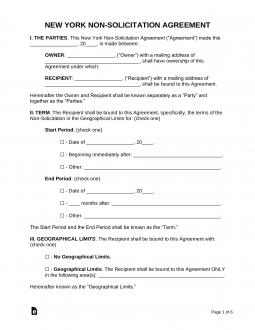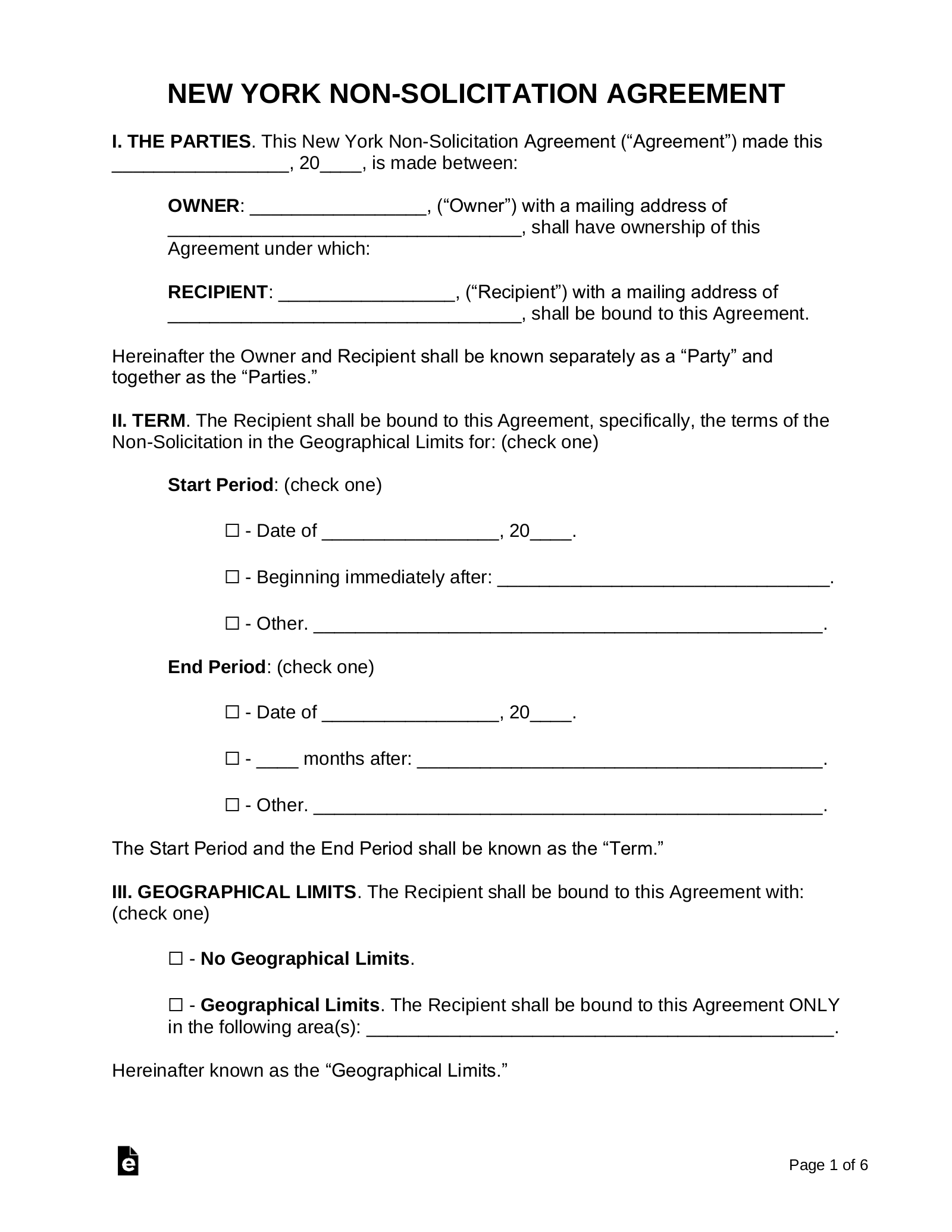Updated October 16, 2023
A New York non-solicitation agreement is a contract that makes rules regarding the solicitation of a company’s clients and employees. It usually exists between an employer and employee, or the buyer and seller of a business. The intent is to protect the business interests of the company from direct competitors. They can be included in employment and severance agreements or can be a stand-alone contract that may also include non-compete and non-disclosure clauses.
Is It Legally Enforceable in New York?
Yes — as long as the terms are considered reasonable under the following criteria:
- The restrictions are necessary to protect the legitimate interests of the business or employer.
- The agreement does not impart any unnecessary hardships on the seller or employee.
- The agreement cannot cause any direct or indirect harm to the public.
(BDO Seidman v. Hirshberg, 93 N.Y.2d 382, 388-89, 690 N.Y.S.2d 854, 712 N.E.2d 1220 (1999))
Table of Contents |
What Types of Solicitation Can Be Prohibited?
Given the terms of the non-solicit covenant are reasonable under the above criteria, a business can customize the agreement to restrict an individual from reaching out to its:
- Former or current clients/customers
- Former or current employees
- Independent contractors
- Suppliers, business associates, etc.
What Should Be Included in the Agreement?
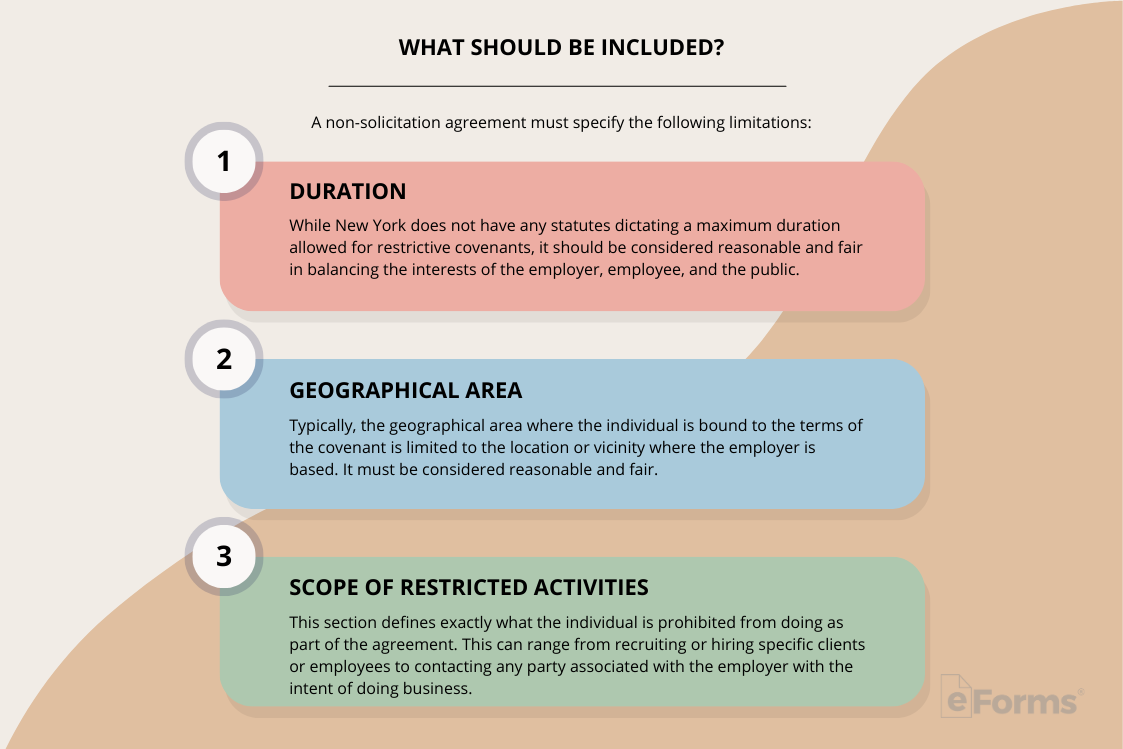
In order to hold up in a New York court of law, a non-solicitation agreement should detail limitations with regard to:
1. Duration
While New York does not have any statutes dictating a maximum duration allowed for restrictive covenants, it should be considered reasonable and fair in balancing the interests of the employer, employee, and the public.
2. Geographical Limit
Typically, the geographical area where the individual is bound to the terms of the covenant is limited to the location or vicinity where the employer is based. It must be considered reasonable and fair.
3. Scope of Restricted Activities
This section defines exactly what the individual is prohibited from doing as part of the agreement. This can range from recruiting or hiring specific clients or employees to contacting any party associated with the employer with the intent of doing business.
Related Forms
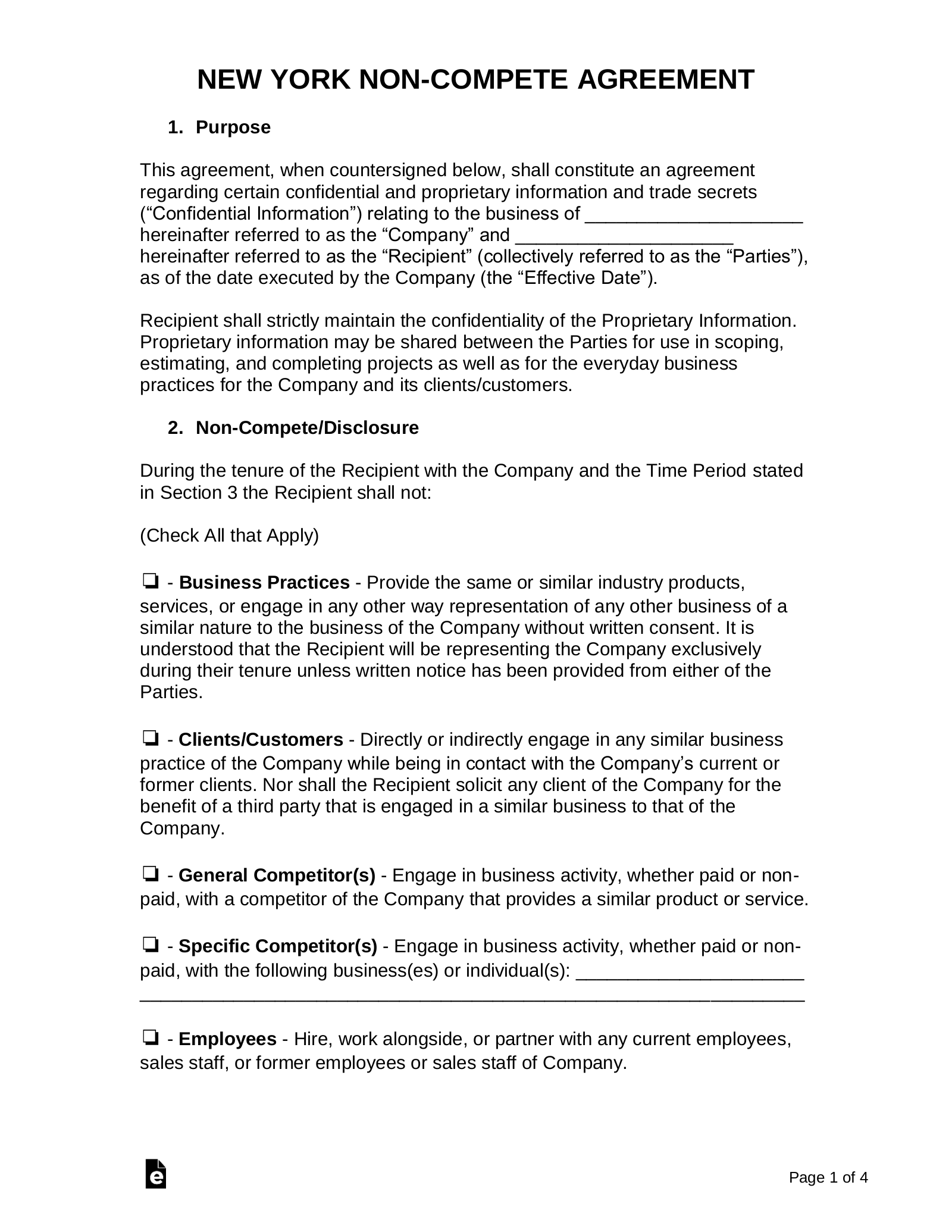 New York Non-Compete Agreement
New York Non-Compete Agreement
Download: PDF, MS Word, OpenDocument
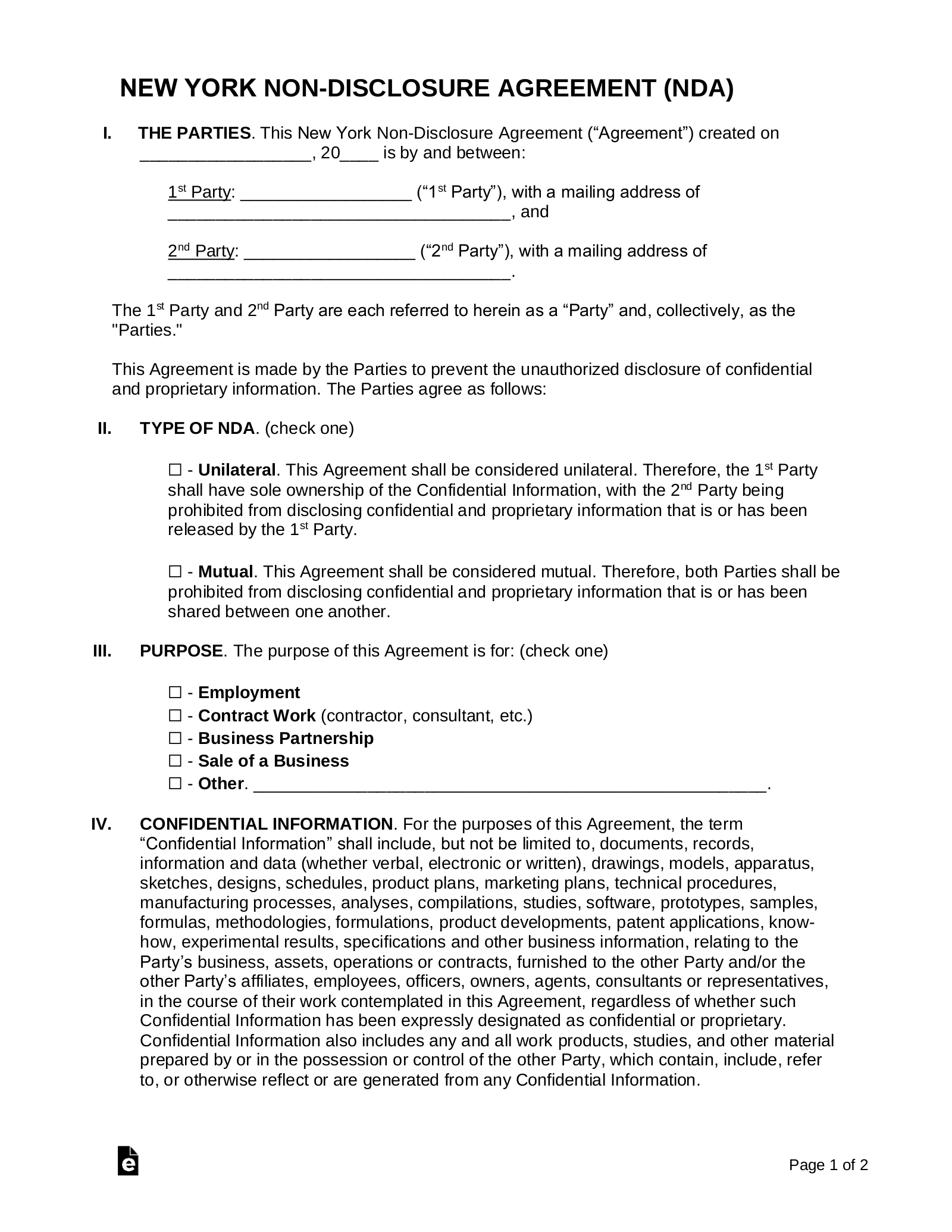 New York Non-Disclosure Agreement
New York Non-Disclosure Agreement
Download: PDF, MS Word, OpenDocument

